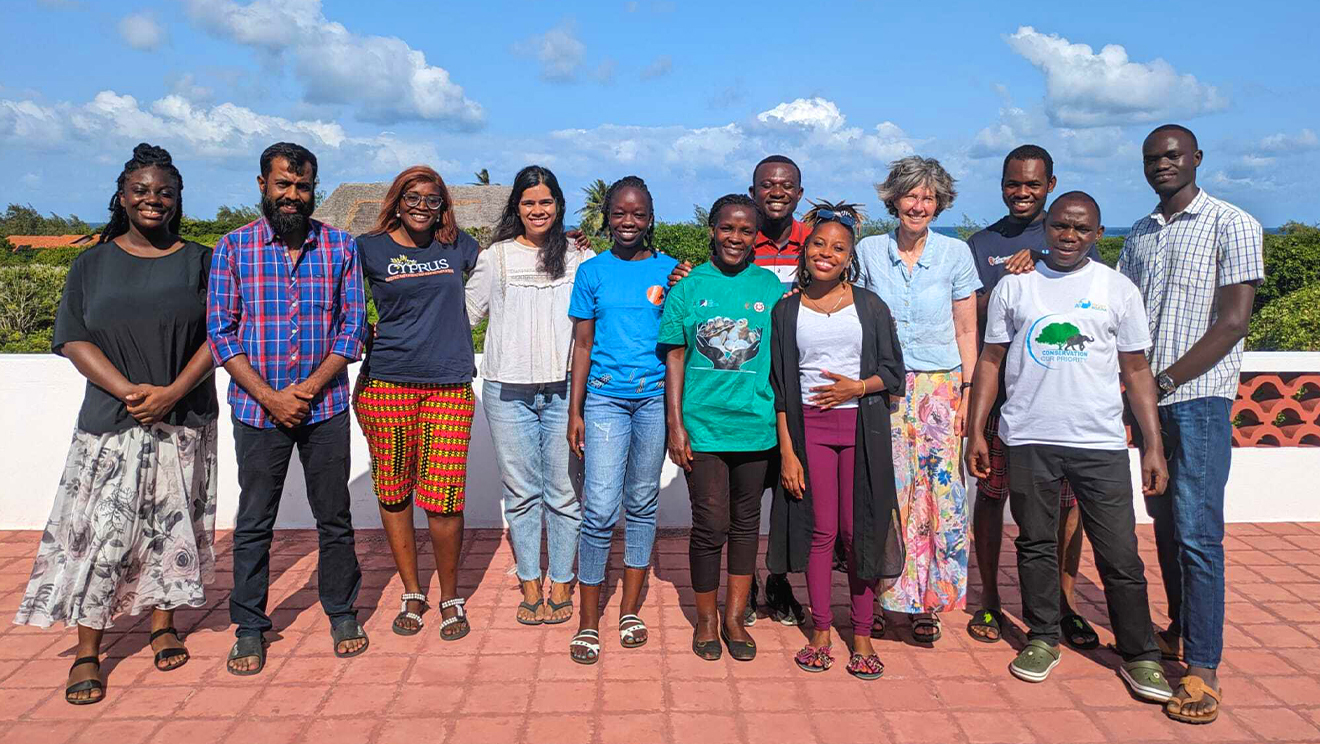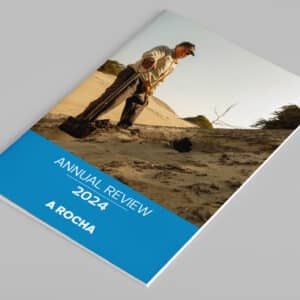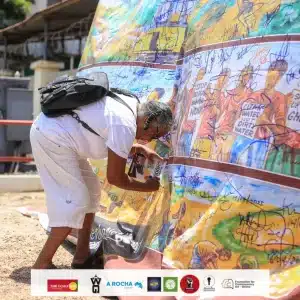In June 2024, A Rocha International funded and facilitated a three-day Environmental Education (EE) Teachers’ Workshop and a five-day EE Conference at Mwamba Centre, Watamu, Kenya, hosted by A Rocha Kenya. Both events shared the theme ‘From Forest to Ocean’, and involved insightful guided visits to globally important biodiversity hotspots.
12 conference delegates from six A Rocha Organizations in Nigeria, Ghana, India, Kenya, South Africa and Uganda visited Arabuko Sokoke Forest, and saw rare, endemic and endangered species, including the Golden-rumped Elephant Sengi Rhynchocyon chrysopygus. At Mida Creek, delegates visited mangroves by dug-out canoe and walked on a canopy boardwalk for experiential learning on mangrove biodiversity in Watamu Marine National Reserve. A visit to Local Ocean Conservation enabled delegates to see rescued turtles and learn about turtle and mangrove conservation.
A Rocha International’s EE and Conservation Policy Director, Sarah French, led participatory and practical sessions on diverse topics such as mangrove biodiversity, climate change, Nature-based Solutions, plastics, The Biodiversity Plan (Global Biodiversity Framework), the Sustainable Development Goals, EE and Education for Sustainable Development, Project Cycle Management and global overviews of the Conservation and Sustainable Development field.
Delegates shared informative updates on the impact of their EE activities and led sessions on co-existence, pollinators, creation care, mangrove projects, eco-schools and creative games and activities, such as the scenario game and Giant Story Book.
As Stephanie Nkansah, from A Rocha Ghana expressed, ‘These conferences help us build our green muscle memory with sustainable actions and information we can apply in our everyday environmental education work.’
The Teachers’ Workshop brought together 18 primary and secondary school teachers from Dakatcha and Malanga forests. This enabled participants to gain knowledge and learning on best practice and build capacity, relationships and peer-support to strengthen their environmental education activities. This will impact upon 8,287 students, including 1,664 wildlife club members!



